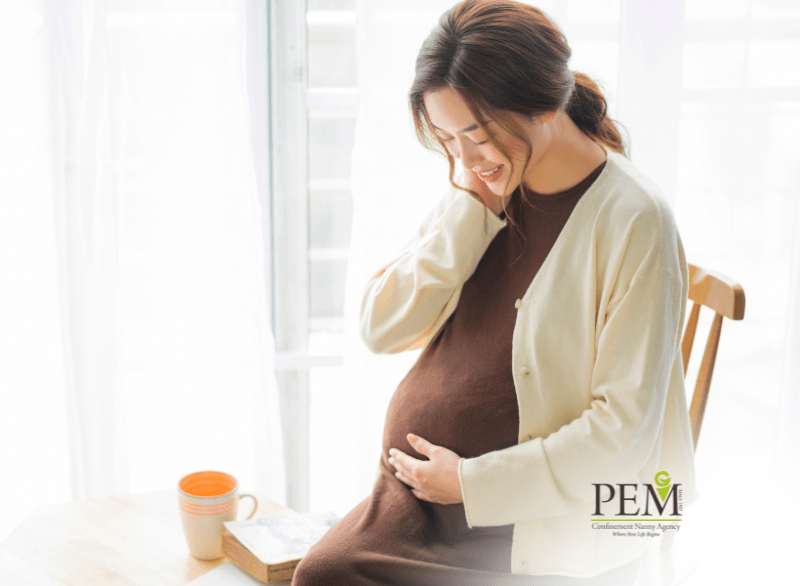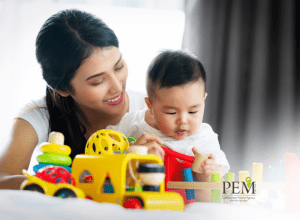[email protected] ♦ (+65) 6293 9249 ♦ Mon - Sun : 10:00AM - 7:00PM
How To Manage Pregnancy Discomforts in Each Trimester

No matter how far along you are in your pregnancy, there are always new things to learn every trimester. The more you know, the better you’ll be prepared! Not only you can expect how it would feel, but you’d also know how to tackle it.
If you are expecting and want to know what to expect during each trimester, this guide provides some of the common symptoms that you would experience. That said, this doesn’t mean that you would definitely experience first trimester symptoms in the first trimester only; these are just general guidelines of when these discomforts are most likely to start, and they could go on for longer depending on your situation. Hence, if you have any doubts and concerns about any pregnancy discomforts that you’re experiencing, remember to consult your doctor.
First Trimester
The first trimester is the earliest stage of your pregnancy. And did you know that it starts way before you’re pregnant? The first trimester actually begins on the first day of your last period, and it lasts until the end of the 13th week of pregnancy. Now let’s look at some of the earliest signs you can get prepared for:
Tender Breasts
Sore and swollen breasts are one of the first pregnancy symptoms you’ll experience. As your body starts getting your milk ducts ready to produce breast milk for your baby, this breast discomfort is caused by hormonal changes. Generally, the soreness will reduce after a few weeks, but for some women, it may continue throughout the first trimester.
How to Feel Better:
If you wear underwire bras, it’s time to replace them with more comfortable wireless bras. Also, you should avoid wearing bras that are too tight. If needed, you can consider getting a bigger bra size too for further comfort.
Frequent Urination
Not exactly the most convenient pregnancy symptom to have, especially when you have a tight daily schedule, but yes, you are likely to make more bathroom trips. This is resulted from your uterus growing and adding pressure on your bladder. Furthermore, as your blood flow increases to support your growing baby, it also causes your kidneys to process additional fluid that is transferred to your bladder.
How to Feel Better:
Looking for ways to stop going to the bathroom so often is not the healthy solution here. As inconvenient as it may sound, this is a normal biological process that your body has to go through to support your well-being and the healthy growth of your baby. So stay hydrated, and head to the bathroom as soon as you can when nature calls.
Second Trimester
Your second trimester of pregnancy happens around the 14th to 27th week, and many mothers-to-be see it as the most enjoyable stage of pregnancy – your body has starting to get used to the discomforts in the first trimester, and your baby is not big and heavy enough to make you feel too uncomfortable yet. Even though you may be feeling better now, major changes are still happening in your body, and here are some of the symptoms that come with it.
Backache and Leg Cramps
As your baby continues to grow bigger, the extra weight you gain will start to add pressure on your back. Along with it, you might start experiencing leg cramps more frequently at night. Leg cramps during pregnancy may be caused by your expanding uterus pressing on certain veins and nerves in your legs. They might be also due to dehydration, or lack of certain nutrients like calcium and magnesium.
How to Feel Better:
If your work requires you to sit down for long hours, make sure your chair provides good back support, and avoid carrying anything heavy. Wearing comfortable flats can help provide better support for your back when you walk too. On the other hand, staying hydrated and doing daily stretching helps with leg cramps. You can also consider getting prenatal massage or pregnancy massage to help ease backaches, leg cramps and water retention around your body.
Stuffy Nose and Nosebleeds
Changes in hormone levels in your body during pregnancy may cause the mucus membrane in your nose to swell, leading to stuffiness and snoring at night. This nasal discomfort may also cause nosebleeds. When a nosebleed happens, don’t tilt your head back, keep it up straight, and apply slight pressure to the nostrils for a few minutes until it stops bleeding.
How to Feel Better:
Keep the air moist in the room by using an air humidifier. Before using any topical treatments like saline drops or decongestant, it’s better to check with your doctor on whether they are safe for your pregnancy.
Third Trimester
Hang in there! You’ve now reached the last stretch of your pregnancy, which starts from the 28th week to childbirth. This last trimester of your pregnancy can be especially challenging, both physically and emotionally, but it will all be worth it once you finally meet your baby! Meanwhile, here are some of the symptoms you can expect:
Braxton Hicks Contractions
As you get closer to your EDD, you’ll feel more frequent mild contractions around your abdomen. This symptom is called the braxton hicks contractions, and it’s a normal sign of your uterus preparing for labour. If you find the contractions getting too frequent or even painful, consult your doctor immediately.
How to Feel Better:
When the contraction happens, switching your position or the activity you’re doing may help. For instance, take a small walk if you’ve been sitting for long hours. Also, staying hydrated may help to ease the contraction, so remember to drink enough water throughout the day!
Heartburn
To make space for your growing baby, your uterus will expand outwards and upwards as the week goes. Two types of hormones called progesterone and relaxin will signal your body muscles to loosen. Eventually, loosened muscles at the top of your stomach might cause stomach acid to flow to your throat, causing heartburn and reflux.
How to Feel Better:
Having certain foods is likely to aggravate heartburn during pregnancy. Generally, you should avoid acidic and spicy foods, as they tend to create more stomach acid compared to other foods. Moreover, having fried or fatty foods can also slow down your digestion and increase likelihood of pregnancy heartburn. Having smaller and more frequent meals may help to prevent heartburn too.
Pregnancy is a beautiful journey in life where you can learn not only how to take care of yourself, but also learn how to do something for your baby and how to handle every situation that comes along your way.
In the meantime, if you are looking for trusted support to guide you into motherhood, PEM confinement nannies Singapore service is here for you. Our Singapore confinement lady is well-trained to support you with confinement care and newborn care during the day and night. Being an award-winning confinement nanny agent service, PEM is trusted by over 15,000 mothers and counting.
Learn more about our confinement nannies Singapore service by clicking on the “Enquire Now” button on the top right corner of your screen now!







